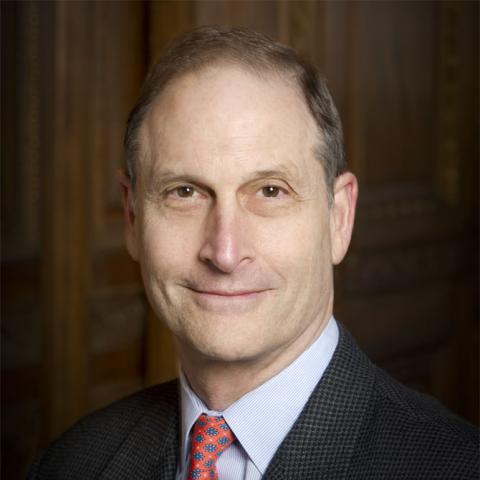Joining The Commonwealth Fund as president marks a new beginning for me, but also a homecoming of sorts. I have been connected to The Commonwealth Fund for more than 15 years: as a grantee, as executive director of its former Task Force on Academic Health Centers, as an external evaluator of Fund programs, and, most recently, as the chair of the Commonwealth Fund Commission on a High Performance Health System. And throughout my career as a primary care physician, professor of medicine and health policy, health care manager, and public servant, I have always found compelling The Commonwealth Fund’s mission of improving health care access, quality, and efficiency. Most recently, The Commonwealth Fund’s focus on creating a high performance health system seemed to capture perfectly the vision I took to work every day as a physician, policymaker, and academician.
Still, it’s humbling to succeed Karen Davis, who has become a much-admired leader in health care policy and philanthropy over the past 20 years. Her impact on the nation’s health care system is huge and indelible. Under her guidance, The Commonwealth Fund in particular has developed a unique voice among American foundations. And in some important, personal ways, I have benefited from her guidance as well. Decades ago, as a medical student and graduate student, I discovered health care policy through reading her lucid and compelling books on national health insurance, health care costs, and health care poverty.
Fortunately for all of us, Karen will continue her scholarly work on Medicare and health system reform at Johns Hopkins University. And fortunately for The Commonwealth Fund, it will enjoy the continuing support and leadership of its prestigious and dedicated board, chaired by James R. Tallon, Jr., president of the United Hospital Fund of New York, as well as the talents of its professional staff. The work of Board and staff members over the past decade, along with that of the Commission, helped to shape the debate that led to the establishment of the Affordable Care Act. It also has informed many other improvements in health care policy and delivery, from new ways to measure health care quality and affordability to innovative programs to reduce readmissions and create patient-centered primary care practices and nursing homes. The Commonwealth Fund’s professional staff are largely responsible for its distinctive products, such as its scorecards on national, state, and local health system performance; its studies of the uninsured and underinsured; its unique international work on comparative costs and quality of health care in the developed world; its Mongan Commonwealth Fund Fellowship in Minority Policy (training minority health care leaders); and its Harkness Fellowship in Health Care Policy and Practice (bringing future health care leaders from nine countries to the U.S. for a year of study).
Despite past achievements, however, it is natural to ask at a time of leadership transition: What now? What will be different at The Commonwealth Fund going forward? Such questions are particularly pertinent at a time of fundamental transition in our health care system. We now know that the Affordable Care Act will be implemented and, as a result, millions will obtain coverage for the first time, new mechanisms to control health spending will take effect, and innovation will accelerate as we experiment with new approaches to pay for and deliver health care.
These questions are too important to answer without deep study and broad consultation. Over the next months I intend to learn all I can about the Fund and its grantees, and to reflect on how we can make the very best use of our resources to make the daily health care of Americans as good and efficient as it can possibly be. In the process I will be consulting widely with health care thinkers and leaders throughout the U.S., with other health care philanthropies, and with The Commonwealth Fund’s board and its excellent staff. I hope our readers will also share their thoughts on these issues. I will be back to you in the very near future to share our findings.
Whatever those are, you can be confident about one thing. The Commonwealth Fund’s work will continue to embody the fundamental values that have guided it since 1918: scientific integrity, a commitment to improving the equity, efficiency, and quality of care, a special concern for the nation’s most vulnerable populations, and a focus on practical, constructive change.



